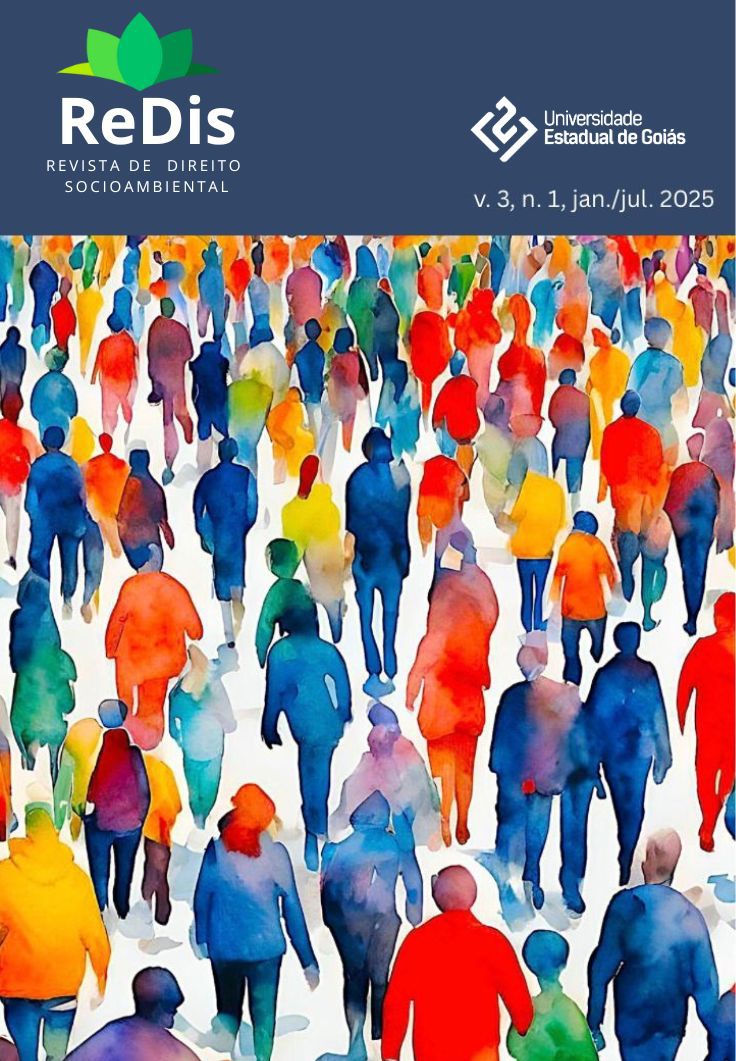THE LEGAL REGIME FOR THE EXPULSION OF FOREIGN CITIZENS IN THE MOZAMBICAN LEGAL SYSTEM
A VERSED ANALYSIS IN LIGHT OF THE FAILURE TO COMPLY WITH LEGAL AND CONSTITUTIONAL PROCEDURES LEADING TO THE JUDICIAL AND ADMINISTRATIVE EXPULSION OF FOREIGNERS BY THE COMPETENT ENTITIES
Keywords:
Legal Regime, Expulsion, Foreigners, Migration., Human RightsAbstract
The present study deals with the Legal Regime for the Expulsion of Foreigners in Mozambique, a very current topic, especially the expulsion of foreigners, as the coercive removal of individuals from territories outside their jurisdiction, observing all legal procedures for staying or leaving for reasons duly substantiated by the authorities with powers to carry it out. However, in Mozambican jurisdiction, it is incumbent upon the Minister who oversees the area of migration, specifically that of the Interior, on behalf of the Government to order the administrative expulsion, pursuant to paragraph 1 of article 40 of Decree No. 108/2014, of 31 December, which approves the regulation of Law No. 23/2022 of 29 December, the legal regime for Foreign Citizens and establishes the respective rules for entering, staying and leaving the country, as well as their rights, duties and guarantees and establishes the respective norms for entering, staying and leaving the country. Furthermore, in the Mozambican legal order, there are two types of expulsions, namely: administrative and judicial expulsion. Under the terms of number 2 of article 40 of Decree number 108/2014, of December 31, the foreign citizen covered by the administrative expulsion measure, if he so wishes, may file an appeal with the Administrative Court, without suspensive effects, in order to safeguard its permanence.
References
BRASIL. Decreto n. 86.715, de 10 de dezembro de 1981. Regulamenta a Lei nº 6.815, de 19 de agosto de 1980.
BRASIL. Lei n. 6.815, de 19 de agosto de 1980. Define a situação jurídica do estrangeiro no Brasil e cria o Conselho Nacional de Imigração.
COSSA, Nócita. Regime Jurídico do Cidadão Estrangeiro. Maputo: Albano Silva e Guilaze, Sociedade de Advogados Ltda., 2023.
GENEBRA. Convenção relativa ao Estatuto dos Refugiados. 28 jul. 1951.
GUEDES, Denyse Moreira; ADAMI, Fabíola Andréa Chofard. Direitos Humanos e Direito Internacional Humanitário: dilemas e desafios no limiar do século XXI. Brazilian Journal of Development, Curitiba, v.7, maio 2021.
LIGA DOS DIREITOS HUMANOS. Relatório anual dos Direitos Humanos. Maputo, 2004.
MARTINE, G. A globalização inacabada: migrações internacionais e pobreza no século 21. São Paulo em Perspectiva, São Paulo, v.19, n. 3, p. 3-22, 2005.
MOÇAMBIQUE. Constituição da República de Moçambique. Maputo: Escolar Editora, 2004.
MOÇAMBIQUE. Constituição da República de Moçambique. Maputo: Escolar Editora, 2018. (Revisão da Constituição da República de Moçambique).
MOÇAMBIQUE. Decreto n. 108/2014, de 31 de dezembro. Regulamento a Lei n. 5/1993, de 28 de dezembro, que estabelece o regime jurídico do cidadão estrangeiro.
MOÇAMBIQUE. Lei n. 23/2022, de 29 de dezembro. Aprova o regime jurídico do cidadão estrangeiro.
MOÇAMBIQUE. Lei n. 5/1993, de 28 de dezembro. Estabelece o regime jurídico do Cidadão estrangeiro.
NOGUEIRA, Ponte. Expulsão de estrangeiro: repensando um instituto antigo. São Paulo: Universidade de São Paulo, Publicações, 2020.
ORGANIZAÇÃO DAS NAÇÕES UNIDAS. Declaração Universal dos Direitos Humanos. 10 dez. 1948.
PORTUGAL. Constituição da República Portuguesa. 2005
PORTUGAL. Lei n. 18/2022, de 25 de agosto. Aprova o regime jurídico de entrada, permanência, saída e afastamento de cidadãos estrangeiros do território nacional.
PORTUGAL. Lei n. 23/2007, de 4 de julho. Estabelece o regime da entrada, permanência, saída e afastamento de estrangeiros do Território português.
RAMOS, Maria da Conceição Pereira. Mobilidade humana internacional, políticas migratórias e direito humanos: avanços e recuos. Revista de Politicas Públicas, Universidade de Paris I, Franca, 2020.
Published
Issue
Section
License
Copyright (c) 2025 Social and Environmental Law Journal

This work is licensed under a Creative Commons Attribution-NonCommercial-NoDerivatives 4.0 International License.
The author(s) agree(s) and declare(s) that:
- They have provided accurate and truthful information and have not created a false identity or used subterfuge with the intent to deceive individuals, institutions, or obtain benefits of any kind;
- They are solely responsible for any and all information provided and are subject to administrative and legal consequences arising from inaccurate or false statements (Articles 298 and 299 of the Brazilian Penal Code) that may cause harm to the Journal or third parties;
- They have not used the Journal for illegal, unlawful, or prohibited purposes, nor for actions that violate the privacy or rights of third parties, including copyright or intellectual property rights.














